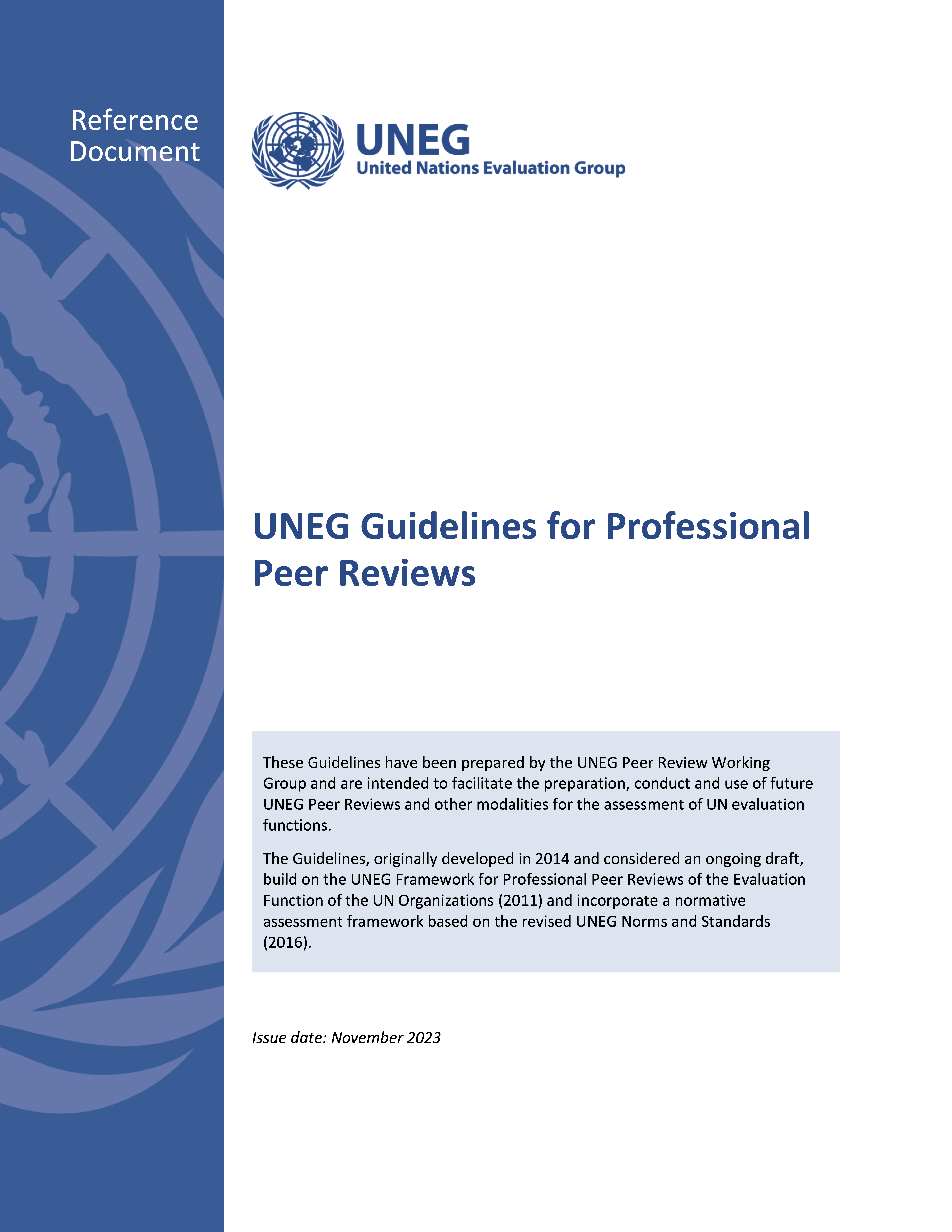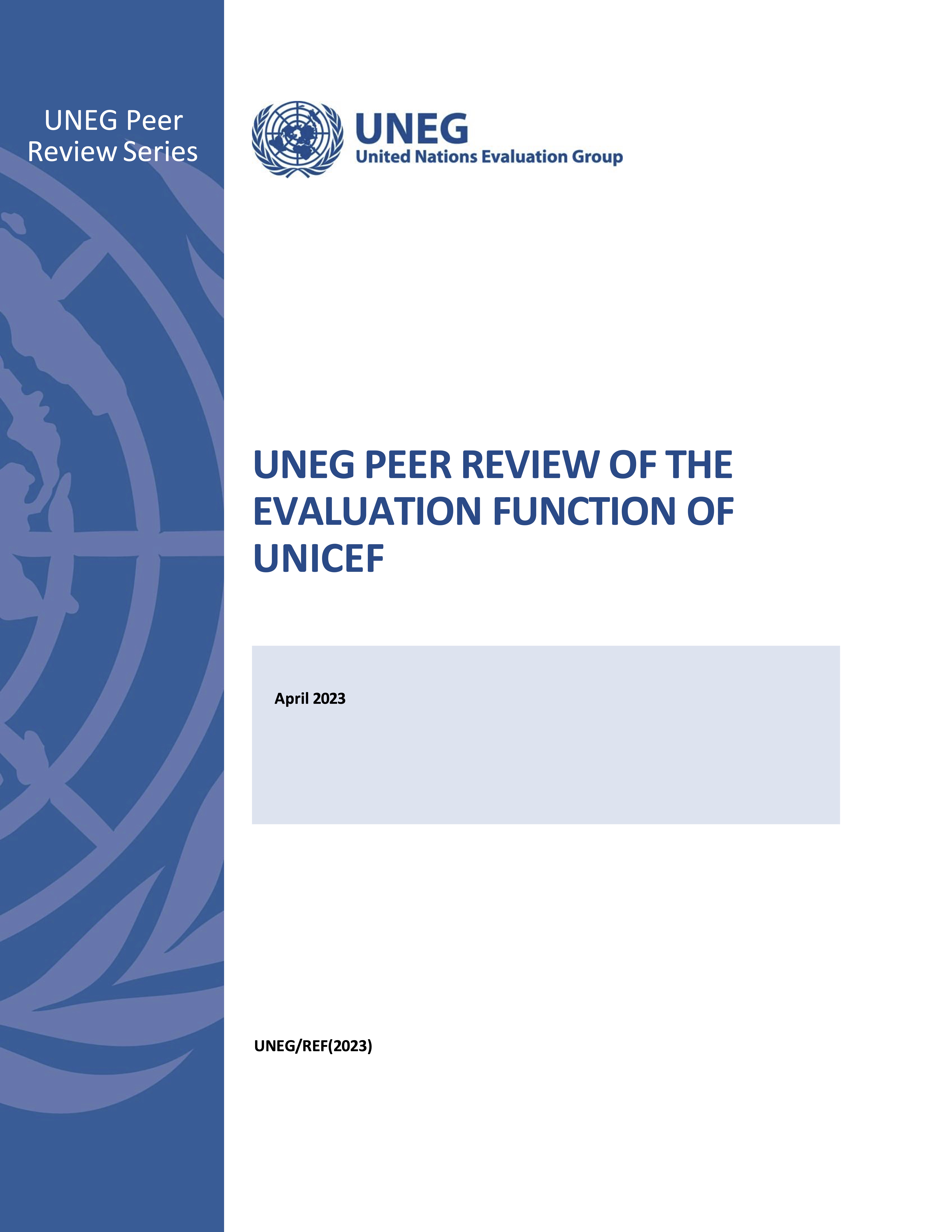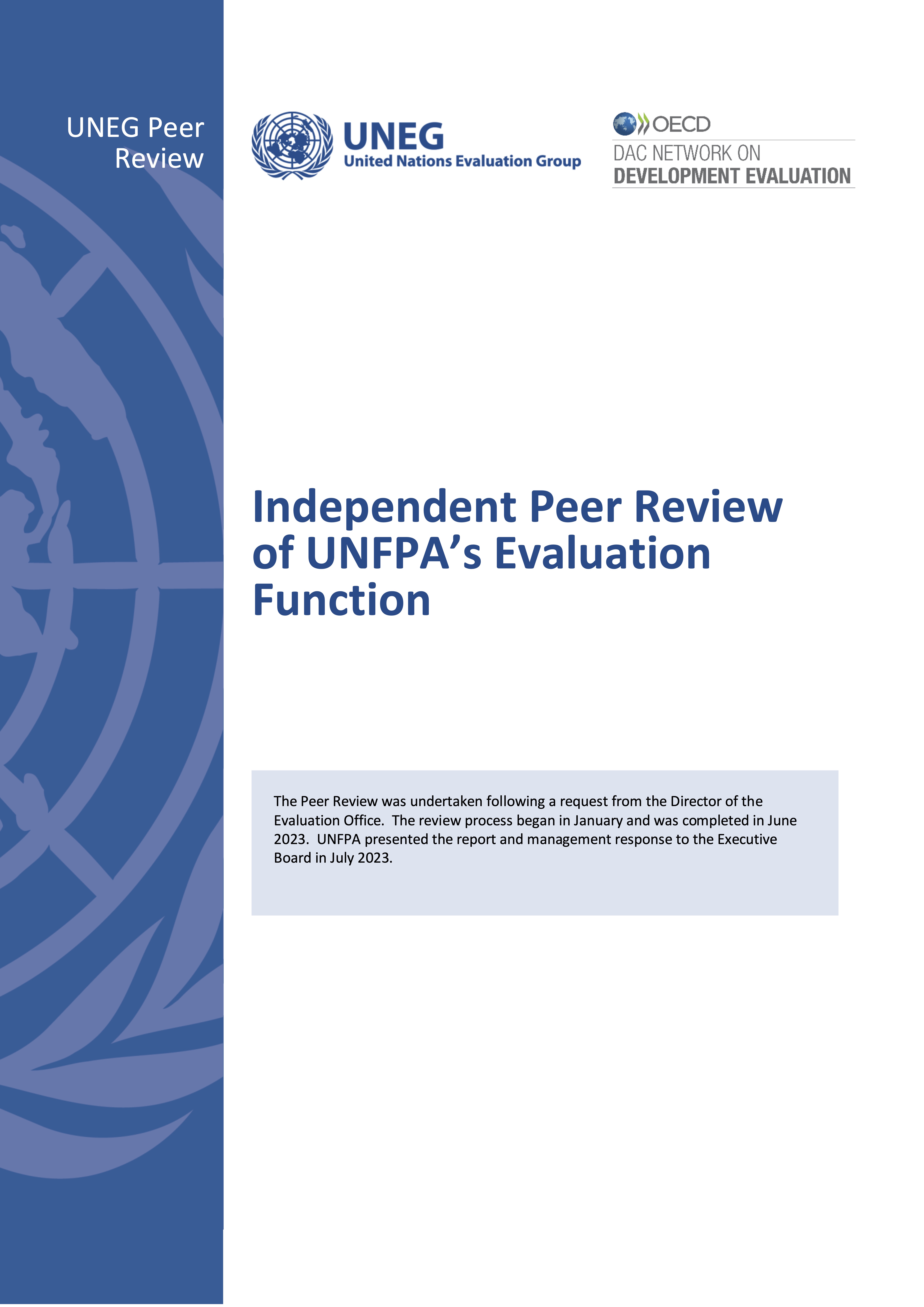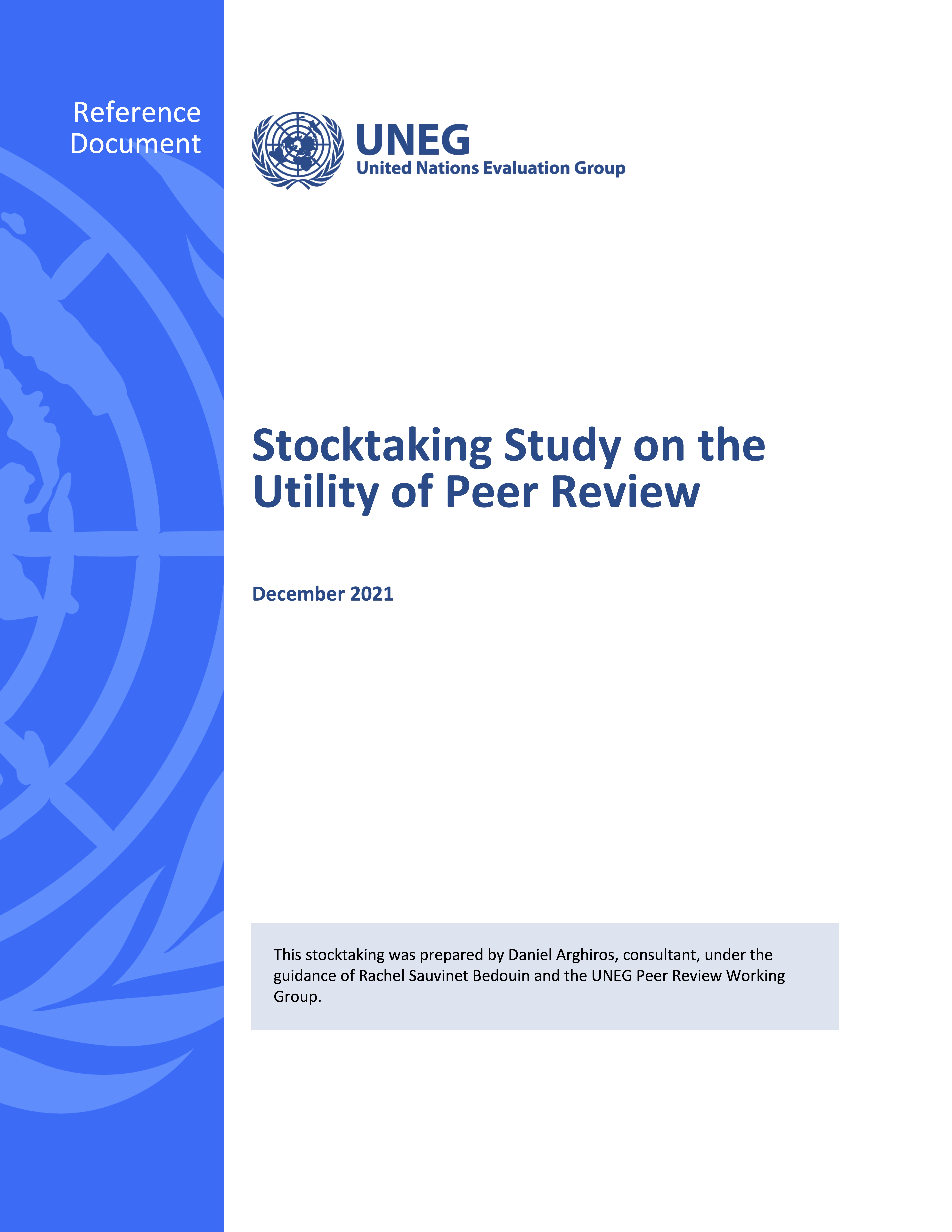Overview
The UNEG PRWG coordinates, oversees and quality assures the planning, preparation, conduct and reporting of UNEG Peer Reviews / assessments of Evaluation Functions of United Nations Agencies. A Peer Review examines if a function, its products and processes are independent, credible and useful for learning and accountability purposes. They identify good practices and provide recommendations to strengthen the function. Peer reviews are caried out by panels of professional evaluation peers.
Since 2004, 27 Peer Reviews have been completed. Sixteen agencies have undergone one peer review: FAO, ICAO, IFAD, IOM, ITC, OIOS, UN-Women, UNESCO, UNFPA, UN-Habitat, UNHCR, UNIDO, UNITAR, UNODC and UNRWA. Four agencies have had two or more peer reviews: GEF, UNICEF, WFP and UNDP.
In addition to supporting individual peer reviews, the PRWG has developed documents and tools available to UNEG members in the pursuit of more professional and stronger evaluation functions. Building on the 2011 UNEG Framework for Professional Peer Reviews, the group developed in 2014 Guidelines for Professional Peer Reviews. These were updated and published in 2023 (link). The new Guidelines recognized the need to provide options for smaller UN evaluation functions. It introduced two “lighter modalities” that cater to smaller organizations. Regardless of the modality of peer review, the PRWG strongly advocates starting any peer review with a self-assessment. The UNEG Self-Assessment Maturity Matrix for UN Evaluation Functions (link) specifies a set of 51 organizational and performance criteria that form a framework for the assessment of the maturity of a UN evaluation function against the UNEG Norms and Standards.
The current workplan of the PRWG includes at least seven agencies who have expressed an interest in conducting a peer review in 2024-2026. The PRWG is also focusing on strengthening ties with OECD-DAC Evalnet to encourage its members to participate in panels.








